
December 12, 2024
Could cats become a carrier of bird flu?
The new study highlights the need for public health officials to ramp up bird flu surveillance in cats, which tend to have frequent contact with both wild animals and people, said Infectious Diseases and Microbiology Professor and Chair Suresh Kuchipudi.
November 20, 2024
MidAtlantic AIDS Education and Training Center Refunded
Congratulations to the MAAETC for renewed funding for United States Public Health Service Region 3 (Pennsylvania, Maryland, Delaware, DC, Virginia, and West Virginia). It is our honor and privilege to continue to be part of the response to the HIV epidemic and related conditions for another 5 years with funding from the Ryan White Program, Part F, USPHS, HRSA, HIV/AIDS Bureau, Office of Program Support (Grant # TR7HA53201-01-00).

October 23, 2024
The polio shot heard round the world
Professor of Infectious Diseases and Microbiology Peter Salk recalls his father’s great medical achievement.
October 7, 2024
Get Ready with APHA - H5N1 Bird Flu
Bird flu, also known as "avian influenza," is a virus that usually makes birds sick. However, the H5N1 bird flu can affect other animals as well as people. Through their Get Ready initiative, APHA offers helpful fact sheets and infographics on H5N1 and many other public health threats.
September 3, 2024
More than half of HIV-positive Americans are 50+. Figuring out care is complex
Linda Frank, professor of infectious diseases and microbiology, advocates for routine testing for HIV by primary care physicians.

August 19, 2024
Expert Insights: Could the next pandemic be lurking closer than we think?
Department of Infectious Diseases and Microbiology Chair Suresh Kuchipudi provides insight on bird flu preparedness.
July 22, 2024
How to protect against West Nile Virus this summer
The last reported human case of West Nile Virus occurred in September 2023, however, Dr. Ernesto Marques, an associate professor in the department of infectious disease and microbiology, cautions that West Nile cases are likely underreported.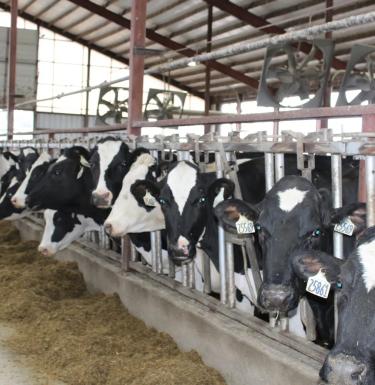
July 22, 2024
In pandemic's shadow, risk of animal to human disease spread still high
"The general understanding is that the more frequent such interactions are, the (more the) risk of disease transmission heightens," said Suresh Kuchipudi, chair of infectious diseases and microbiology.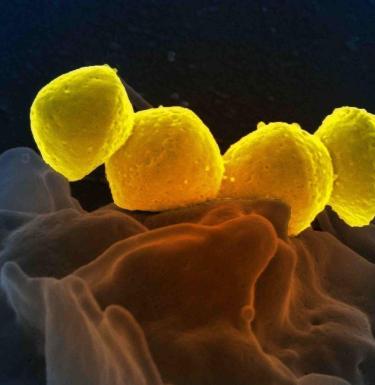
June 24, 2024
Record-breaking rise in deadly infections in Japan renews focus on the mysteries of strep
“When a patient comes in with group A strep in the blood, unless they have a wound, you often don’t know how it got into the body,” said Lee Harrison, professor of epidemiology and infectious diseases and microbiology.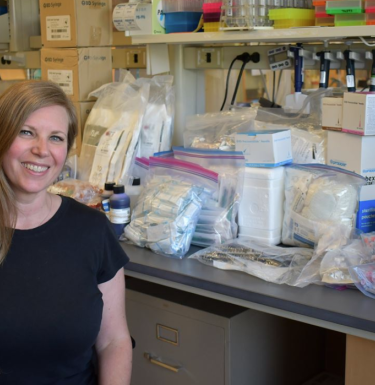
May 29, 2024
Pitt professor to deliver key animal healthcare supplies to Bolivia
The amount of waste from expired and unused lab supplies always bothered Pitt researcher Danielle Tufts. But after reading about a sanctuary that rescues animals from abuse, illegal pet trade and wildlife trafficking in Bolivia, she saw an opportunity.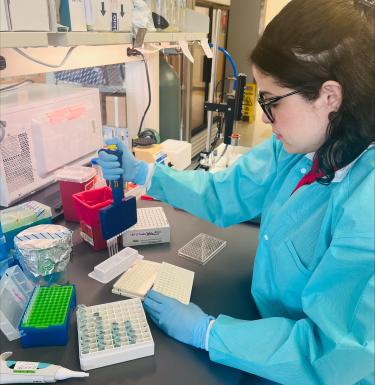
May 15, 2024
New synthetic biomarker technology differentiates between prior zika and dengue infections
A newly discovered Zika virus-specific synthetic molecule is capable of differentiating Zika-immune patient samples from samples of patients previously infected with the related dengue virus.
May 13, 2024
Dara Méndez and Amy Hartman selected as Health Sciences Ascending Star Awardees
Congratulations to Dara Méndez, associate director of the center for health equity and associate professor of epidemiology and Amy Hartman, associate professor of infectious diseases and microbiology, on receiving 2024 Ascending Star Awards.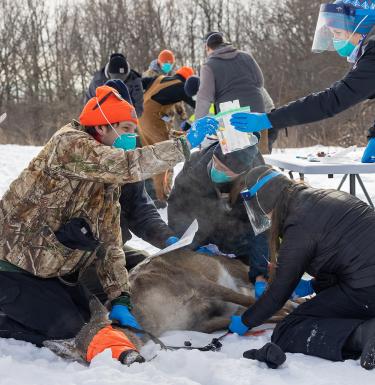
April 30, 2024
Virus gone wild: Which wild animals carry the COVID-19 virus? An ambitious U.S. project aims to find out
Infectious Diseases and Microbiology Chair Suresh Kuchipudi, and others aim to collect and analyze more than 24,000 samples from 58 wildlife species over the next 2 years.
April 22, 2024
Africa intensifies battle against mpox as ‘alarming’ outbreaks continue
The global outbreak helped bring new attention to mpox and led to a boom in research, Jean Nachega associate professor of Infectious Diseases and Microbiology and Epidemiology says, but almost all of it came in Europe and North America.
April 15, 2024